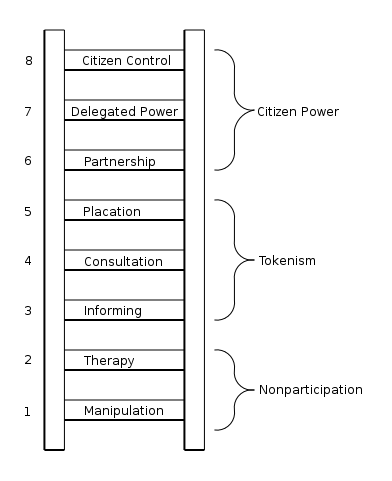
Ann Huddock of Counterpart got in touch recently to discuss the idea of a post on how much she hates the word ‘empowerment’ (she’s banned it in Counterpart comms). In the end, we decided that the word had already got enough criticism, but I put out a tweet asking people to nominate other devspeak words we should ban, and my twitter feed was promptly overwhelmed by a tidal wave of gobbledygook (now that is a fine word).
I’ve put some of them together in an A-Z below (OK, there’s no Z), and a poll to identify the absolute worst, but first some overall thoughts:
First, there are clearly some broad categories
- Mangling the language of Shakespeare (‘impactful’, ‘capacitating’, ‘learnings’)
- Words that arrogant, patronising and/or neo-colonial (‘empowerment’, ‘capacity building’)
- Good words used sloppily or badly (eg ‘technical’)
- Straight out lies (Cambria Feingold: “empowering”/”participatory”/”demand-driven” when it’s anything but). See also, ‘country ownership’.
- Words that are just outdated or wrong (‘The South’; ‘The Field’)
- Words that are designed to baffle/make the speaker sound smart (‘Leveraging’, ‘business model’)
- Words which are actually phrases, but I let them through anyway (theory of change, but it hurt)
- Words that used to mean something, but have had the life sucked out of them by endless repetition and lip service (‘participatory’, ‘transformative’)
Second, as well as specific suggestions, there were some good overall comments:
Deborah Doane: ‘We should always ask ourselves: would I use this phrase in my own life or community? If the answer is no, then cease and desist!’ Good point: would I talk about ‘sustainable livelihoods’ in South London? Probably not…

Elise Legault: ‘Wish we could draw-up a list and create an ‘anti devspeak’ app you could run through any text and it would give you plain language alternatives.’ [any offers?]
Dan Simpson: Don’t ban the words; expose the bullshit artists who are abusing them! Sherry Arnstein’s ‘ladder of citizen participation’ is a genius example.
Adam Pickering: Agree with most of the suggested words to ban but would struggle without some of them – which possibly points to bigger issues. Maybe changing language because it has become synonymous with an inherent power imbalance makes us feel better because it obfuscates an awkward reality?
And for those that want to dig further, Jonathan Fox reminds us of Andrea Cornwall’s classic book all about the problems with devspeak, Deconstructing Development Discourse: Buzzwords and Fuzzwords
Then Carol Ballantine got me thinking when she observed ‘Funny thing about this thread is that, with the exception of resilience, I think it’s the same as when I studied devt 15 yrs ago.’ Is that true? If so, the churn and faddishness of the aid lexicon may have been exaggerated.
OK, here’s the list:
- Accountability (when it’s not true)
- Beneficiaries
- Best practice
- Business model (‘what does that even mean?’ asks Sophia Sprechmann – couldn’t agree more)
- Capacitating
- Capacity building: (Robin Perry: aka ‘how I learned to stop worrying and just fill the empty vessel with training’)
- Catalytic
- Co-anything (thanks, Nicholas Colloff)
- Country ownership
- Cross-cutting issues
- Cross-fertilisation
- Developing countries
- Dignity (when you mean “rights”, Kevin Chang)

- Dissemination – (‘communication that is one directional’, Caroline Cassidy)
- Distributed ledger (Gawain Kripke is always a step ahead)
- Empowerment
- Enabling Environment
- Failure
- (in the) Field
- Gender based violence (or even worse, GBV, when what we mean is violence against women: Emma Donnelly)
- Global South
- Good governance
- Graduation
- Ground-truthed
- Growth
- Holistic
- Hostile Environment Awareness (eh?)
- Human capital
- Impactful (‘Seriously, it’s not even a word’, Chris Hufstader)
- Innovation
- International ‘Development’
- Learnings
- Leveraging (‘Used to make the speaker appear plugged into to ‘private sector’ and high finance, but makes them look an idiot instead.’, Dominic Elson)
- Local staff vs international staff
- Mainstreaming
- On Mission (‘unless you are on Mars’, Ian MacAuslan)
- Ownership (‘Especially when this needs a village management committee! Some villages must have 16 committees for water, wells, nutrition, schools, health, protection, etc… ’ Fenke Elskamp)
- Participatory
- PDIA (you know that’s not a word, right, Annette Fisher?)
- The Poor
- Pro-poor
- Problematize
- Projects
- Resilience
- Scaleable (which my spellcheck interestingly suggestions should be ‘saleable’…..)
- Sensitising/sensitisation/sensitise (always done to a usually low income community, usually by people in a land cruiser and always with a large amount in the budget request – sorry, can’t remember who said that).
- Stakeholder
- Systemic Change
- Success
- Sustainability/”sustainable” when you mean either “we don’t have a plan for what happens after the project” or “sustainable income stream for my org” (Cambria Feingold)
- Technical
- Theory of Change (me: Nooooooooo)
- Toolkit
- Trade-offs
- Transformative/Transformation/Transformational Change (‘and all the rest of the over inflated expectations about development aid’, Rick Davies)
- Value for Money (Graham Wood: ‘when someone works out what value for money means I would ban that too.’)
- Vulnerable populations
- Workshop (when you mean a meeting, not car repairs, Kevin Chang)
There is of course a serious point here: proponents of aid and development do their cause no favours by using language that is sloppy, arrogant or just plain dumb.
I’ve picked a top (bottom) 10 from among the worst offenders – you only get 4 votes each, sorry!
[poll id=”55″]